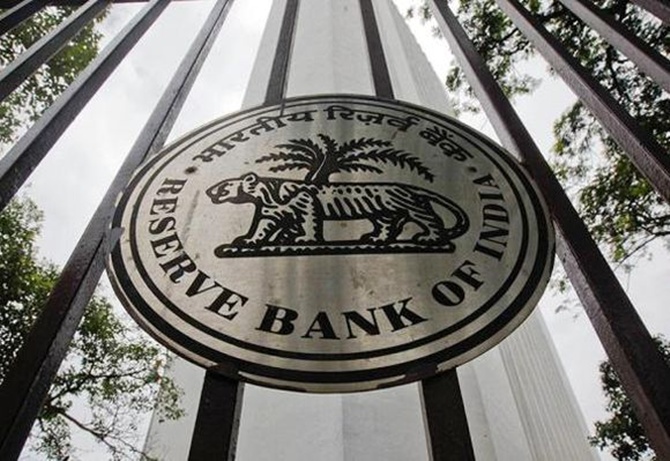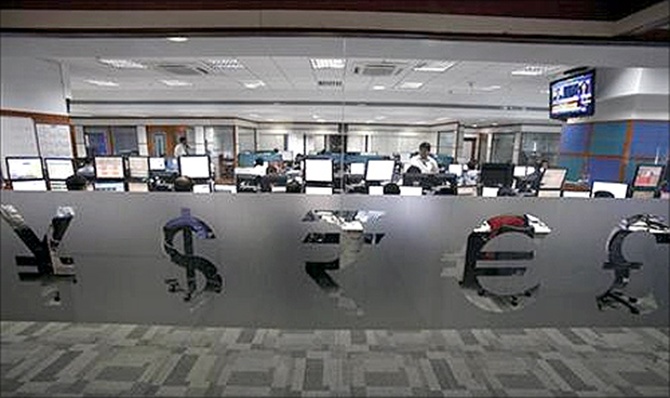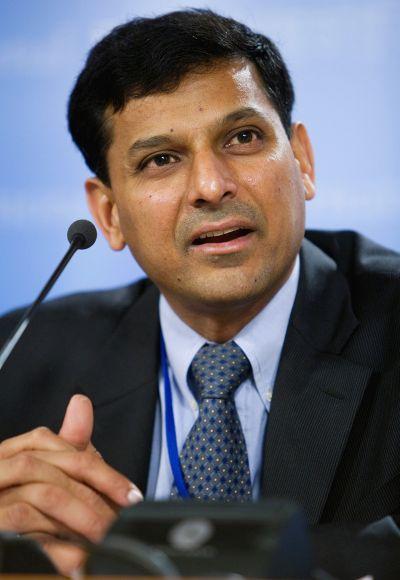
The rupee's travails allow the RBI's incoming governor to renegotiate the objectives of monetary policy.
I have been a Reserve Bank of India (RBI) “groupie” for much of my professional life.
This condition began in the late 1970s, when I first spent time in Mumbai, collecting data for a dissertation on Indian monetary policy.
It continued over my two years as special consultant to the governor (between 1992 and 1994), soon after the 1991 reforms. I also had the privilege of serving one term on the RBI’s Monetary Policy Committee under Governors Y V Reddy and D Subbarao.
This long association with the institution and many of its officers has imbued me with affection and respect for their dogged professionalism in an increasingly politicised operating environment.
As such I am grieved to see the situation in which it currently finds itself. Inflation in India is well above that in its emerging market peers, while financial stability is increasingly threatened by rising non-performing assets in public sector banks.
...

I focus on these outcomes rather than the external value of the rupee or the current account deficit.
Controlling inflation and ensuring financial stability are the core accountabilities of a central bank, ones on which it should reasonably expect to be judged.
I also believe that much of the uncertainty currently gripping Indian financial markets, as well as the adverse commentary in the international press, in substantial measure can also be traced to lack of clarity on the RBI’s mandate and goals.
As government spokespersons are quick to point out, there remain considerable strengths in India’s short-term position when it is compared with other large emerging markets.
Growth, actual and prospective, remains at the higher end of the emerging markets’ range; saving and investment rates remain relatively high; and even the much-feared current account deficit, though outside the traditional comfort zone of 2-2.5 per cent of GDP, is not extraordinary by the standards of fast-growing emerging markets.
...

India is paying the price for the absence of a clear and well-understood “nominal anchor” to guide price expectations.
In classical times, expectations on the future path of prices were driven by the link between the currency and a physical commodity, most often gold specie. (Similarly, global price stability was ensured through the adjustment mechanism of the gold standard.)
As the domestic link with gold was broken after the First World War (Keynes in 1924 called it a “barbarous relic”), gold was replaced in the balance sheet of central banks by a combination of foreign exchange assets (international reserves) and domestic government debt.
When the Bretton Woods system collapsed in the early 1970s, the link with international reserves was also weakened and the advanced countries moved entirely into the world of what is called pure fiat money.
...

The experience of the advanced countries in the 1970s showed that this framework was insufficient to manage inflationary expectations, particularly in a world of floating exchange rates.
This experience resulted in the theory and practice of inflation targeting. This approach was first adopted in New Zealand in 1990 and thereafter in the United Kingdom and a number of other advanced countries and emerging markets (though not the United States, nor, until very recently, Japan).
Under this doctrine, announcement of a politically endorsed inflation target by an institutionally autonomous (and credible) central bank seeks to provide an anchor for price stability of the kind previously provided by gold.
The financial crisis of 2007 has prompted much criticism of inflation targeting in those countries where it was practised. This criticism is largely on the grounds that a sole focus on narrowly defined price stability led to neglect of financial stability with disastrous consequences.
...

While this may be true, a decade of inflation targeting has anchored inflation expectations sufficiently firmly so as to allow central banks to experiment with unorthodox monetary policy (in particular, quantitative easing).
Under successive governors and deputy governors the RBI has resolutely rejected inflation targeting, insisting that it was both inappropriate and unworkable in India, and has preferred to operate a so-called “multiple indicators” approach that gives it complete discretion over both goals and instruments.
The present juncture reveals the limitations of this approach. The expenditure blowout of 2008 and poor fiscal marksmanship since then have reduced the credibility of the fiscal authorities, while the RBI’s lack of success since 2010 in achieving its price goals has undermined its own credibility.
This has not been for want of trying, since the RBI has been on a tightening cycle since 2010. But there was much less political support for nipping inflation in the bud than earlier, leaving the RBI relatively lonely in its crusade.
...

Operating a flexible exchange rate in this environment contributes the risks we are witnessing today.
Market participants and households fear a downward spiral where nominal exchange rate depreciation stokes inflation and undermines the fiscal deficit as well as harming corporate creditworthiness.
I find it significant that there is much less international concern about the consequences of the sharp fall in the dollar value of the Brazilian real , which has depreciated almost as much as the rupee.
These differing market responses to volatile capital movements represent the hard-won fruit of over a decade of responsible and transparent fiscal and monetary management in Brazil in an inflation-targeting framework.
This is so even as the governance and infrastructure challenges for Brazil remain substantial, much as in India.
...

The arrival of a new RBI governor on September 5 provides an opportunity to reopen the debate.
While in academia, Raghuram Rajan headed a committee on reform of the financial sector commissioned by the Planning Commission*.
I was privileged to be a member of the committee, which reported on the eve of the global crisis. As the report’s title indicates, progress was associated with a series of incremental measures rather than radical change.
While the report shied away from recommending full-blooded inflation targeting, it did suggest that the RBI explicitly adopt a low-inflation objective, both to clarify its own hierarchy of goals and to improve communication with the market.
A forceful announcement to this effect early in his term, with strong support from the finance minister, could well provide the firebreak needed to restore confidence at the present time.
The writer is chief economist, Shell International. These views are his own.
(* “A Hundred Small Steps: Report of the Committee on Financial Sector Reform”
https://planningcommission.nic.in/reports/genrep/report_fr.htm )